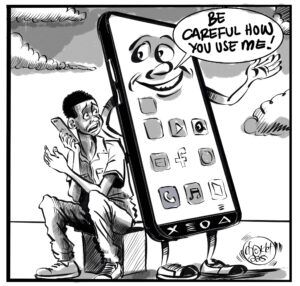The Electoral Commission of Zambia (ECZ) says opposition political parties rush to make allegations against the electoral body to the media instead of utilising the established channels within the ECZ to air their concerns regarding the electoral process.
Chief elections officer Patrick Nshindano said in an interview that even the matter of the alleged bribery cases in Chilubi ahead of next month’s by-election had not been reported by any of the participating political parties and other stakeholders, but were only making accusations in the media.
He said because of that, the Commission could not probe the allegations until they are officially lodged with the ECZ.
“As it stands now, it is a mere allegation but of course, whenever something comes to our attention, we do put our people on the ground, we do investigate and validate any accusations that come out because it is important that we do that. And if it is deemed that it is breaching the Electoral Code of Conduct, as a commission, we also need to act. Also just to note that there are structures on the ground that are placed to resolve any conflicts…like, for example, the district conflict resolution committees. So if there are any aspects, they need to be taken to them and these committees actually comprise of all political parties. [But] allegations are made in the media and not officially to the electoral commission and even if accusations are made in the media or to the Electoral Commission, they do not provide sound basis in which to reform any policy or law,” Nshindano said.
“This is why we are saying that there are structures which are able to resolve this but unfortunately, a number of stakeholders don’t want to utilise these structures. Unfortunately, these structures are ignored and they would rather basically just throw accusations out there instead of taking advantage of the structures. The solution lies in stakeholders providing and detailing what the gaps are so that we can enhance our electoral process. If we don’t do that and we just say the electoral commission for example is compromised, how are we going to know? At what point we are going to improve?”
He urged concerned political parties to clearly indicate what their concerns were about the electoral process.
“Politicians will always be politicians; and I think as a commission, we will endeavour to avoid becoming politicians. We have very clear structures for engagements; political party liaison committees where all political party stakeholders come through and they are briefed on a number of processes. The bottom line is for them and other stakeholders to clearly indicate what their concerns are and provide credible alternatives on what can be done and this should be within what is legally right. If not, then they should focus on pushing for necessary legal reforms of which they have the power through Parliament than just making accusations at the ECZ and undermining the credibility of the electoral process,” Nshindano said.
“What we expect is credible criticism on the part of stakeholders to tell us that ‘ECZ, the election process is flawed and why it is flawed is because of ABC and what we need is to be able to reform this particular law’. When it comes to conflict resolution, we are guided by the Code of Conduct and we are going to utilise the structures that are there and the law that is there. It is important, through these structures, to point out what it is that needs strengthening so that it is strengthened. Don’t just throw accusations, it is not helpful at all.”
Meanwhile, Nshindano said no political party has written to the Commission to give reasons why the printing of ballot papers for next year’s general elections should not be done in Dubai.
“There is a lot of talk about the printing of ballot papers not being transparent. But when you look at the process of bidding, that is a process that is guided by the public procurement Act. What one needs to do is just simply read the Act. The commission did put out a public notice in terms of an advert to call for bidders to be able to submit their tenders as it were if they wanted to participate in that. The advert ran for two solid months last year but of course, because people don’t follow these aspects, they wait until the last minute and then start crying foul. But even before that, we did put out a public notification to say that ‘these are the people that participated and we intend to award; and if there is anyone who is aggrieved about the process, they should come forward’,” said Nshindano.
“But all you hear is people making allegations in the media, especially stakeholders. None of the political parties have written to us why we should not give this particular printer [the contract] and it is extremely unfair. I think we need to start looking at how we build our electoral process. We should be able to suggest where the gaps in the electoral process are that we can build on. Stakeholders should refrain from just throwing stones at the Commission. I think we are there to conduct credible elections that are fair and free and that meet the aspirations of the Zambian people. If there are any gaps, we expect stakeholders to highlight those gaps so that we can be able to work on those gaps, be it legal, be administrative, so that once those are dealt with, you are able meet everyone’s aspirations. But where you just continue throwing allegations of malpractice, I think it is very very unfair. The Commission means well; the people that are at the Commission are men and women of high integrity and it is not right that we should continue on this path of [accusations].”



















